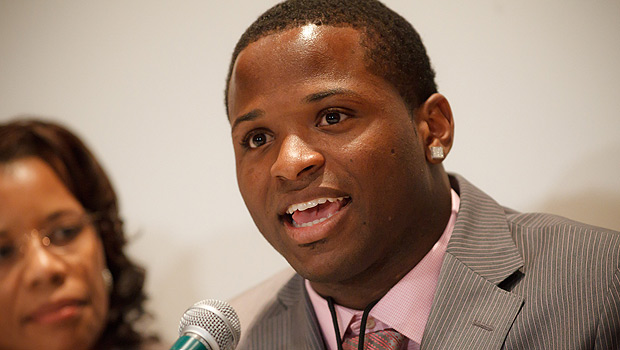
When it comes to inequities concerning race and college sports, you can talk about changing rules, paying players for their work or otherwise distributing the earnings of athletic departments.
But in the end, the most important thing institutions can do to reform the intercollegiate sports system is provide its players – even the at-risk ones – with a useful education.
That’s according to some of the nation’s top experts on race and college sports. They convened at Wake Forest’s “Losing to Win: Discussions of Race and Intercollegiate Sports” to lay out the problems in what they call the exploitative system of college athletics and to offer solutions.
“We need to follow the money. The money is going to be the best way to decipher when something is not being done correctly,” said Kenneth Shropshire, lawyer and professor at the Wharton School. “People of color and women are not at the end of the money trail. … We are not getting paid.”
He recommended diverting some of millions of dollars college athletes earn each year for their schools into programs that would ensure that every sports recruit receives a quality education and clear direction for a post-sports career.
“The reason we’re talking about paying players is because the institutions aren’t upholding their end of the bargain,” said Alphonso Smith Jr., former Wake Forest football player and NFL cornerback. If colleges followed through, “you don’t need to give anyone anything other than a free education.”
Such change isn’t inconceivable – but it certainly can’t be accomplished without the effort of a broad range of people, said Bernard Franklin, executive vice president of the NCAA. College sports’ governing body can’t do it alone, he said.
“If we’re going to affect change, then we have to look at things differently and a little bit creatively,” he said.
Key to that is getting college chancellors and presidents involved, he said, because those campus leaders have always been at the forefront of the NCAA’s policy changes.
This summer, the NCAA will coordinate a retreat for Division 1 chancellors and presidents to talk about the issues examined during “Losing to Win.”
“Losing to Win” participants look forward to the outcome.
“Black athletes are missing superb opportunities for learning,” said Deborah Stroman of the Department of Exercise and Sport Science at UNC-Chapel Hill. “I can’t sit on the sidelines while injustices and missteps occur.”
Categories: Alumni, Athletics, Events, For Alumni, For Parents, National, Speakers, Top Stories
Headlines
Wake Forest in the News
Wake Forest regularly appears in media outlets around the world.




